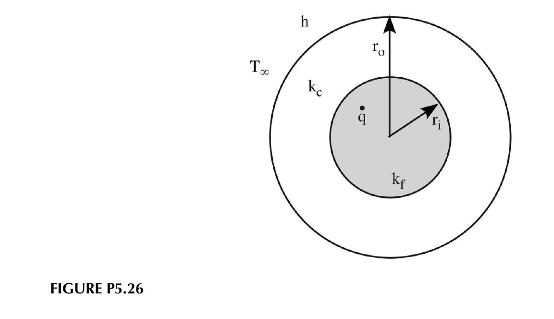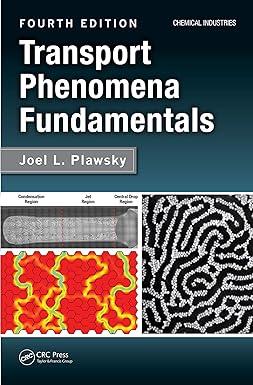A cylindrical nuclear fuel rod contains a core of active, fissionable material and a cladding formed from
Question:
A cylindrical nuclear fuel rod contains a core of active, fissionable material and a cladding formed from a high-temperature metal (Figure P5.26). The heat generation rate within this core is a function of position that we will approximate via a parabolic function.
\[\dot{q}=q_{o}\left[1+\alpha\left(\frac{r}{r_{i}}\right)^{2}\right]\]
The fuel rod is exposed to a coolant that circulates at a temperature of \(T_{\infty}\) and provides a heat transfer coefficient of \(h_{o}\left(\mathrm{~W} / \mathrm{m}^{2} \mathrm{~K}\right)\). Determine:
a. The temperature profiles in the fuel and cladding.
b. The heat flow through the fuel rod.
c. The critical cladding thickness yielding maximum heat transfer.
Fantastic news! We've Found the answer you've been seeking!
Step by Step Answer:
Related Book For 

Question Posted:





